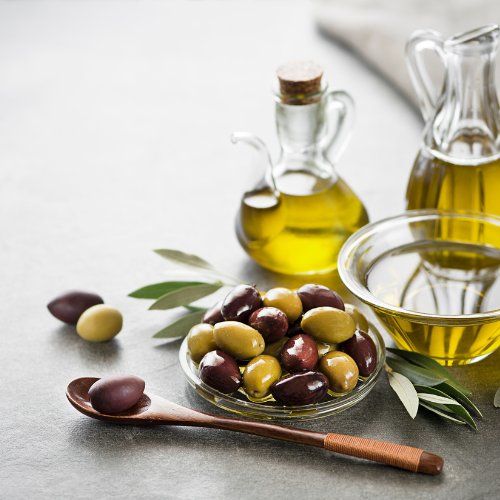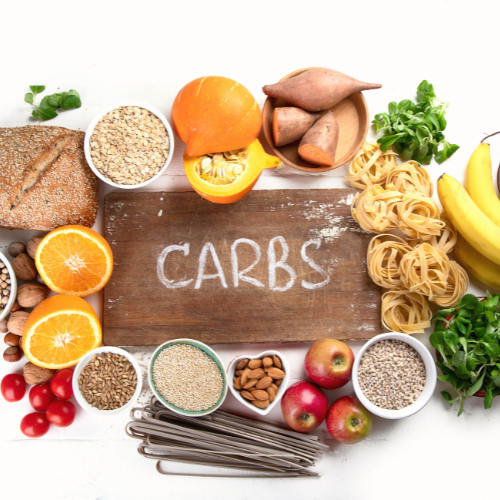Fat.
What comes to mind when you hear the word “fat”?
Unsurprisingly, not many of us are a big fan of this three-letter word. There are many negative attitudes, emotions, and strong opinions about fat.
However, fat isn’t as bad as you might believe. And when it comes to fats, not all are created equal.
Some fats are actually good for us and can help promote health, while others are unhealthy and can contribute to weight gain, heart disease, and other chronic conditions.
Fat is essential for the function of every cell. Fat is necessary for normal brain development during infancy and childhood. It is required for energy and growth throughout life.
Not getting enough dietary fats can be harmful. A low-fat diet might disrupt hormone production, cell membranes, and nutrient absorption. In contrast, consuming too much fat may cause problems. We can overload the liver and gallbladder, which may lead to a variety of chronic health issues because the liver regulates hormones and toxins as well as detoxification processes.
Just as with any nutrient, the type of fat is what's important.
Fats can be either saturated or unsaturated.
Saturated fats tend to solidify at room temperature and come from animal products such dairy or fatty meats.
Unsaturated fats are liquid at room temperature and are recognized to be advantageous because they are anti-inflammatory and can lower blood cholesterol levels and heart health. They're mostly found in fish (although fish contains high levels of toxins) and plant sources like vegetable oils, avocados, nuts, and seeds. They can be further broken down into polyunsaturated and monounsaturated fats.
Fats enable the absorption of fat-soluble vitamins, including A, D, E, and K. They also help promote feelings of fullness and satisfaction while providing a concentrated source of energy for the body. With 9 calories per gram, fats provide more than double the amount of calories that both carbs and proteins offer at 4 calories per gram each. If you’re not eating mindfully, these calories can quickly add up, leading to weight gain.
Saturated Fats
A diet high in saturated fat has been linked to an increased risk of developing diabetes, obesity, heart disease, gallbladder disease, and certain types of cancer.
Additionally, research has shown that consuming a diet rich in saturated fats can lead to higher levels of endotoxin absorption and increases the intestinal absorption of lipopolysaccharides (LPS).
LPS is a molecule found on the outer surface of gram-negative bacteria. It can cause inflammation by triggering the secretion of pro-inflammatory cytokines, generating superoxides, and inducing a strong immune response. The generation of LPS by the gut microbiome is now considered an important driver in many inflammatory diseases, including autoimmunity, allergy, metabolic syndrome, obesity, diabetes and Alzheimer’s disease. Saturated fat in particular has been shown to increase postprandial endotoxemia.
Trans Fats
Trans fats are considered the worst kind of fat for you.
Trans fats, or trans fatty acids, are a type of unsaturated fat that has been artificially hydrogenated to make it more solid and stable such as shortening or margarine. This process increases the shelf life of foods, but it also makes the fat more harmful to our health. Trans fats raise LDL (“bad”) cholesterol and lower HDL (“good”) cholesterol.
Many people are unaware of the dangers of trans fats, but these dangerous fats can be found in many popular foods such as fried, "fast" packaged, or processed foods, as well as dairy and meat products. Trans fatty acids have been linked with serious health conditions, such as cardiovascular disease, breast cancer, preeclampsia, disorders of the nervous system and vision in infants, colon cancer, diabetes, obesity and allergy.
The greatest danger from trans fat is due to its ability to distort the cell membranes. In addition, they have negative consequences for the brain and nervous system. When people consume foods with trans fats, these unhealthy particles work their way into membrane cells surrounding neurons. This blocks communication between cells and impairs one's cognition and mental performance. Studies have also shown a correlation between trans fat intake and depression risk, as well as Alzheimer's disease and cognitive decline with age.
There is no such thing as a safe level of trans fat.
Omega-3 Fatty Acids
Omega-3s are polyunsaturated fats that fall into the category of essential fatty acids, which you can't manufacture yourself. You have to obtain them externally. They have been shown to improve heart health and joint pain, and they also support brain function and development, cellular communication, immune health, and mood regulation.
There is growing evidence that omega-3 fatty acids have immuno-modulatory properties, which means they may be beneficial in a variety of inflammatory diseases such as inflammatory bowel disease, asthma, cystic fibrosis, and rheumatoid arthritis.
Although more research is needed, patients with rheumatoid arthritis who were supplemented with omega-3 fatty acids noted significant improvements in symptoms. These included reduced duration of morning stiffness, number of tender or swollen joints, joint pain, and time to fatigue. They also had increased grip strength and decreased use of non-steroidal anti-inflammatory drugs (NSAIDs).
Omega-3s have been shown in numerous animal studies to benefit heart health. Omega-3 fatty acids, for example, may improve cardiac function and reduce risk of arrhythmias and sudden cardiac death by stimulating the vagus nerve. They can also promote overall better health by increasing the number of Bifidobacteria in the gut and they have been shown to revert the microbiota composition in various diseases and increase the production of anti-inflammatory compounds such as short-chain fatty acids. Omega-3s influence both the gut-immune axis and the gut-brain axis through their role in intestinal wall integrity.
Omega-3 fatty acids are also being studied for their role in cancer prevention and treatment. Some observational studies have indicated that people who consume more omega-3s have a lower risk of developing certain types of cancer, including breast, colon, and prostate cancer. There is also some evidence that omega-3s may help improve the effectiveness of chemotherapy and reduce the side effects of radiation therapy.
Considering all of its benefits, not getting enough omega-3s can have severe consequences for your health. The most common symptom of omega-3 deficiency is dry, itchy skin. You may also experience fatigue, poor circulation, mood swings, joint pain, and brittle nails.
Actual omega-3 deficiency can lead to decreased growth in children, inflammation, increased susceptibility to infection, poor wound healing, and even brain impairment. 
There are two main types of fatty acids: short-chain and long-chain fatty acids.
Short chain fatty acids include omega-3 ALA (alpha-linolenic acid) and omega-6 LA (linoleic acid). Long-chain fatty acids include omega-3 EPA (eicosapentaenoic acid) and omega-3 DHA (docosahexaenoic acid).
ALA fats, which are found in plant-based foods, are mainly processed by your intestines and liver and are needed for energy. The body can convert ALA into EPA and DHA, which are the other two long-chain omega-3s. These offer more potent health benefits than ALA. EPA manages inflammation throughout the body while DHA is key to sustaining brain health.
Unfortunately, while plant-based eaters consume fewer harmful fats than omnivores, they miss out on EPA and DHA found in animal products. The only exceptions are microalgae and seaweed. So those who rely on ALA from plants to convert into EPA and DHA may not be getting enough of these important nutrients.
Furthermore, research indicates that most of us are not very efficient in converting ALA to EPA and DHA. For example, one serving of flaxseed oil contains no EPA or DHA. While it does have 7.3g of ALA, the conversion rates to EPA and DHA are only 5% and 0.5%, respectively! This means that you would need to consume around 145g of flaxseed oil to get the equivalent amount of EPA as just one 3.5oz serving of salmon!
Also, many people consume too much linoleic acid, a type of omega-6 fatty acid, relative to their intake of ALA, which can interfere with the conversion of ALA to EPA and DHA. This is because some omega-6s compete for the same enzymes for these conversions to occur.
Omega-6 linoleic fatty acids are found in most vegetable oils, with sunflower, corn, soybean, safflower, and cottonseed oils containing the highest amounts. The standard Western diet typically provides too many omega-6s relative to omega-3s.
This may have a pro-inflammatory impact on the body and raise your chances of acquiring various chronic illnesses. Omega-6s are not bad; you just need them in the correct proportion to omega-3s. The optimal ratio of omega-6 to omega-3 is somewhere between 4:1 and 1:1. On average, the standard Western diet falls around 16:1!
While we are not advocating eating animal foods, it is important to take deliberate steps to meet your omega-3 requirements on a plant-based diet.
Fortunately, omega-6 LA fatty acids are plentiful in plant foods, such as grains, nuts, seeds, and their oils, so people generally get plenty of this essential fat (and often too much).
It’s important to include sufficient, reliable sources of ALA in your daily diet, such as chia seeds, flaxseeds, hemp seeds, and walnuts. Also, make sure you are consuming a healthful, whole-food, plant-based diet. By consuming sufficient protein, vitamins and minerals, you will maximize your body’s ability to convert ALA to EPA and DHA.
Furthermore, limit your omega-6 consumption from vegetable oils to improve the ratio of Omega-6 to Omega-3. If you must use oil, choose oils like extra virgin olive oil, which has a healthy omega-6 to omega-3 ratio. And finally, consider taking a plant-based omega-3 supplement derived from microalgae, especially if you’re suffering with high inflammation or you are at risk of deficiency (for example, if you’re pregnant or over 65 years old).
Just be aware that omega-3 supplements may interact with warfarin and any other anticoagulant medications, so it’s best to check with your healthcare practitioner first if you take one of these.
A Note On Extra Virgin Olive Oil
For many of you, oil is a staple, and you just can’t fathom life without it.
Well, if you want to use oil, the best (or least problematic) options are those low in saturated and trans fats, low in omega-6 fatty acids, and high in omega-3s. Avocado oil and extra virgin olive oil are the two best options. "Virgin" indicates that the oil was extracted by pressing rather than chemically treated. Contrary to what was once believed, extra virgin olive oil (EVOO) is very stable at high temperatures. 
Extra virgin olive oil contains oleic acid and antioxidants, both of which have demonstrated anti-inflammatory properties. In fact, some estimates indicate that the oleocanthal in 3.4 tablespoons (50 ml) of extra virgin olive oil has a similar effect as 10% of the adult dosage for ibuprofen. Studies also show that olive oil antioxidants can inhibit genes and proteins that drive inflammation.
EVOO has been shown to help prevent strokes, heart disease, type 2 diabetes, Alzheimer's disease, and cancer in numerous studies. In fact, according to a systematic review and meta-analysis involving more than 841,000 individuals, only olive oil was linked to a decreased chance of stroke and heart disease.
Many studies have also revealed positive impacts of olive oil on blood sugar and insulin levels. In a study observing 772 individuals aged 55 to 80 who were at high risk for cardiovascular disease, those given extra virgin olive oil or mixed nuts showed lower blood pressure, better lipid profiles, decreased insulin resistance, and reduced concentrations of inflammatory molecules when compared to the group consuming a low-fat diet. Another study found that a Mediterranean diet rich in olive oil decreases the probability of developing type 2 diabetes by 40%.
Although more research is warranted, in vitro and in vivo studies suggest that oleocanthal in olive oil can help remove the beta-amyloid plaques that are characteristic of Alzheimer’s disease. Another study showed that a Mediterranean diet enhanced with extra-virgin olive oil or nuts appeared to improve cognition compared to a low-fat diet.
Finally, the antioxidants in olive oil can combat oxidative damage due to free radicals, which is believed to be a leading driver of cancer. One study concluded by stating, “it seems probable that olive and olive oil consumption in southern Europe represents an important contribution to the beneficial effects on health of the Mediterranean diet.”
However, although it has several benefits, oil is still a high-calorie, processed food that should be eaten sparingly. In fact, just one tablespoon of oil contains about 120 calories! Fats in their whole form, such as those found in nuts and seeds, are superior. More research is warranted to compare the health advantages between quality oil and fats consumed in their whole, natural state.
Whole Food Sources Of Healthy Fats
The best kind of fats are the whole food sources of healthy fats.
Oil is, after all, a highly processed food. The most common vegetable oils sold in supermarkets are refined using a solvent extraction method that uses petroleum by-products. All of the fiber and protein are removed, as well as the majority of the phytonutrients, resulting in a food far from what nature intended! Preservatives are also frequently used to extend their shelf life.
Avocado oil is often used in salad dressings, but have you ever considered just adding a whole avocado to your salad? You could also add olives for flavor instead of using olive oil.
And nuts and seeds are some of the most nutritious foods on the planet. They contain more fiber, protein, and phytonutrients than their oils, making them way healthier for you. The added fiber slows down their digestion so that the calories are released into your body more slowly, creating a steadier form of energy.
Studies show that using nuts and seeds as your major source of fat is associated with more weight loss, more lowering of cholesterol, about a 39 to 40% reduction in cardiac death and about a 30% reduction in all-cause mortality.
The fat and fiber in nuts and seeds help to regulate your appetite. As you’re not flooding your body with excess calorie load, your dopamine receptors in the brain are not being stimulated. The fiber helps to prevent some of the fat absorption and actually attracts oxidized LDL or “bad” cholesterol into the gut from the blood vessels that line the digestive tract. 
Tips To Increase These Healthy Fats In Your Diet
So now you’re armed with all this knowledge on the best kind of fats for you, how can you go about putting this information into action?
You can incorporate more of these healthy fats into your diet in a number of different ways. Of course, we’re not advocating you go nuts on nuts! Frequent intakes of moderate amounts are recommended when it comes to eating nuts.
But here are some top tips to get more of the healthy fats into your diet in order to crowd out the bad fats:
- Make a trail mix for your snack that includes a variety of nuts and seeds
- Sprinkle nuts and seeds on your smoothie bowl or porridge in the morning or in your salad
- Instead of using olive oil or avocado oil as a salad dressing, try including a whole avocado or a handful of olives
- Use a nut butter or avocado on your bread rather than dairy butter or oil
- Use nut butter as a dip with vegetable sticks instead of shop-bought dips
- Add avocado to your smoothie or make a chocolate mousse with avocado and cacao
- Add nuts to replace croutons in soups or stews
- Use almond flour or any other nut flour to make plant-based desserts
Recipe Spotlight: Zucchini Falafels
Not all fats are created equal. One of the biggest things you can do to lower your cholesterol levels is to reduce your intake of foods with trans fats and saturated fats and go with foods containing omega-3 fatty acids.
Our zucchini falafel contains several sources of plant-based omega-3 fatty acids. From chickpeas to zucchinis to olive oil, this recipe will give you a fluffy, crispy, and tasty falafel when you’re in the mood for a nibble. It may take some prepping the night before, but the health benefits are well worth the extra effort. Enjoy!















What Do You Think? Comment Below: